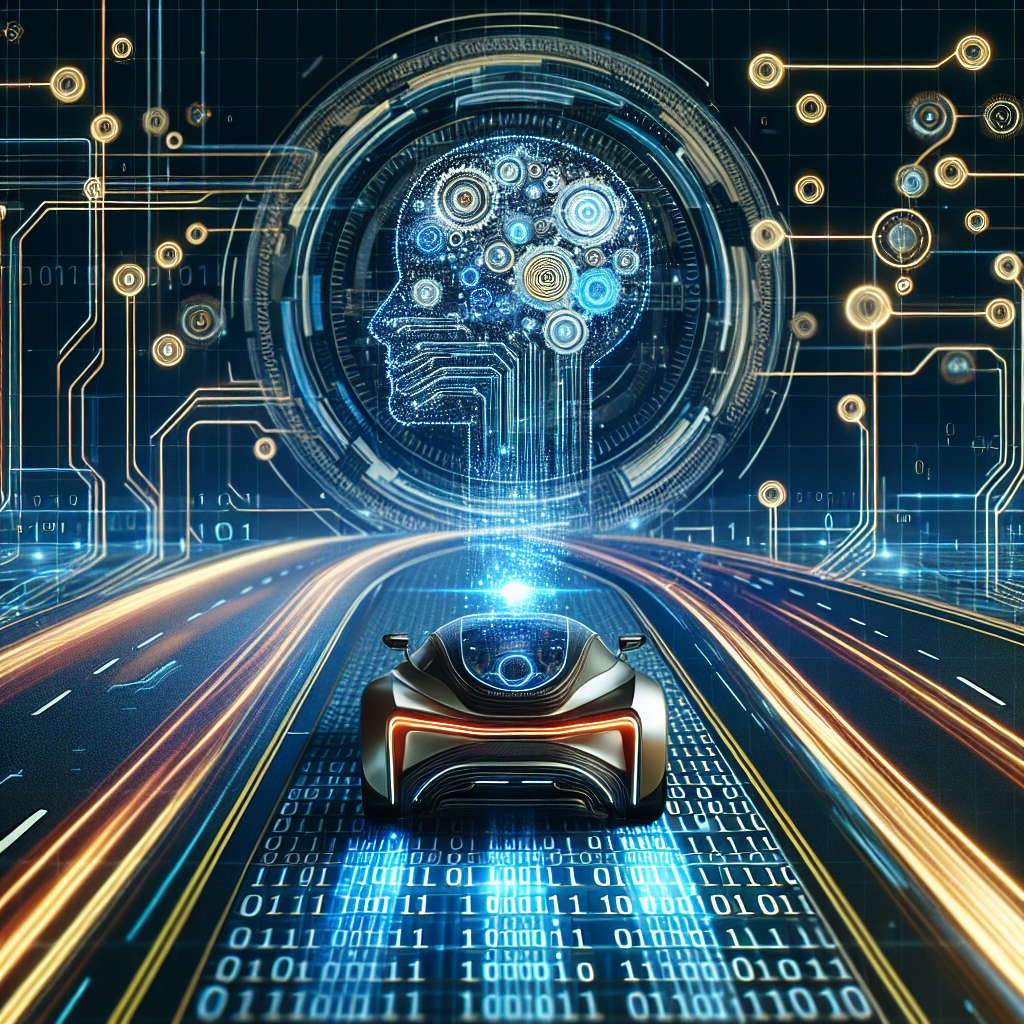In recent years, artificial intelligence (AI) has been making significant strides in revolutionizing various industries, one of which is transportation. AI automation has the potential to transform the way we move people and goods, making transportation safer, more efficient, and more sustainable. From self-driving cars to smart traffic management systems, AI automation is set to disrupt the traditional transportation sector in a big way.
One of the most significant areas where AI automation is revolutionizing transportation is in the development of autonomous vehicles. Companies like Tesla, Google, and Uber have been making significant investments in developing self-driving cars that use AI algorithms to navigate roads and make decisions in real-time. These autonomous vehicles have the potential to reduce accidents, traffic congestion, and carbon emissions, making transportation safer and more environmentally friendly.
AI automation is also being used to improve the efficiency of public transportation systems. Smart traffic management systems use AI algorithms to optimize traffic flow, reduce congestion, and improve the overall efficiency of public transit networks. These systems can adjust traffic signals in real-time based on traffic patterns, weather conditions, and other factors, helping to reduce commute times and improve the overall passenger experience.
Another way AI automation is revolutionizing transportation is in the development of predictive maintenance systems for vehicles and infrastructure. By using AI algorithms to analyze data from sensors and other sources, transportation companies can predict when maintenance is needed and schedule repairs before a breakdown occurs. This can help to reduce downtime, lower maintenance costs, and improve the overall reliability of transportation systems.
In the logistics and supply chain industry, AI automation is also having a significant impact. Companies are using AI algorithms to optimize routes, schedule deliveries, and manage inventory more efficiently. This can help to reduce costs, improve delivery times, and streamline operations for logistics companies and their customers.
Overall, AI automation is transforming transportation in a variety of ways, from self-driving cars to smart traffic management systems to predictive maintenance solutions. By harnessing the power of AI, transportation companies can improve safety, efficiency, and sustainability, making transportation more reliable and accessible for everyone.
FAQs:
Q: How does AI automation improve safety in transportation?
A: AI automation can improve safety in transportation by reducing human error, predicting and preventing accidents, and optimizing traffic flow. Self-driving cars, for example, are equipped with sensors and AI algorithms that can detect potential hazards and make split-second decisions to avoid collisions. Smart traffic management systems can also help to reduce accidents by adjusting traffic signals and routing vehicles in real-time to prevent congestion and accidents.
Q: What are the potential benefits of AI automation in transportation?
A: Some potential benefits of AI automation in transportation include reduced accidents, improved efficiency, reduced carbon emissions, and improved passenger experience. By using AI algorithms to optimize routes, schedule maintenance, and manage traffic flow, transportation companies can reduce costs, improve reliability, and make transportation systems more sustainable and accessible for everyone.
Q: Are there any challenges to implementing AI automation in transportation?
A: There are several challenges to implementing AI automation in transportation, including regulatory hurdles, cybersecurity risks, and public acceptance. Governments and regulatory bodies will need to establish guidelines and regulations for the use of autonomous vehicles and other AI technologies in transportation. Cybersecurity risks also need to be addressed to prevent hacking and other malicious attacks on AI-powered transportation systems. Additionally, public acceptance of autonomous vehicles and other AI technologies will be crucial for their widespread adoption and success in the transportation sector.

